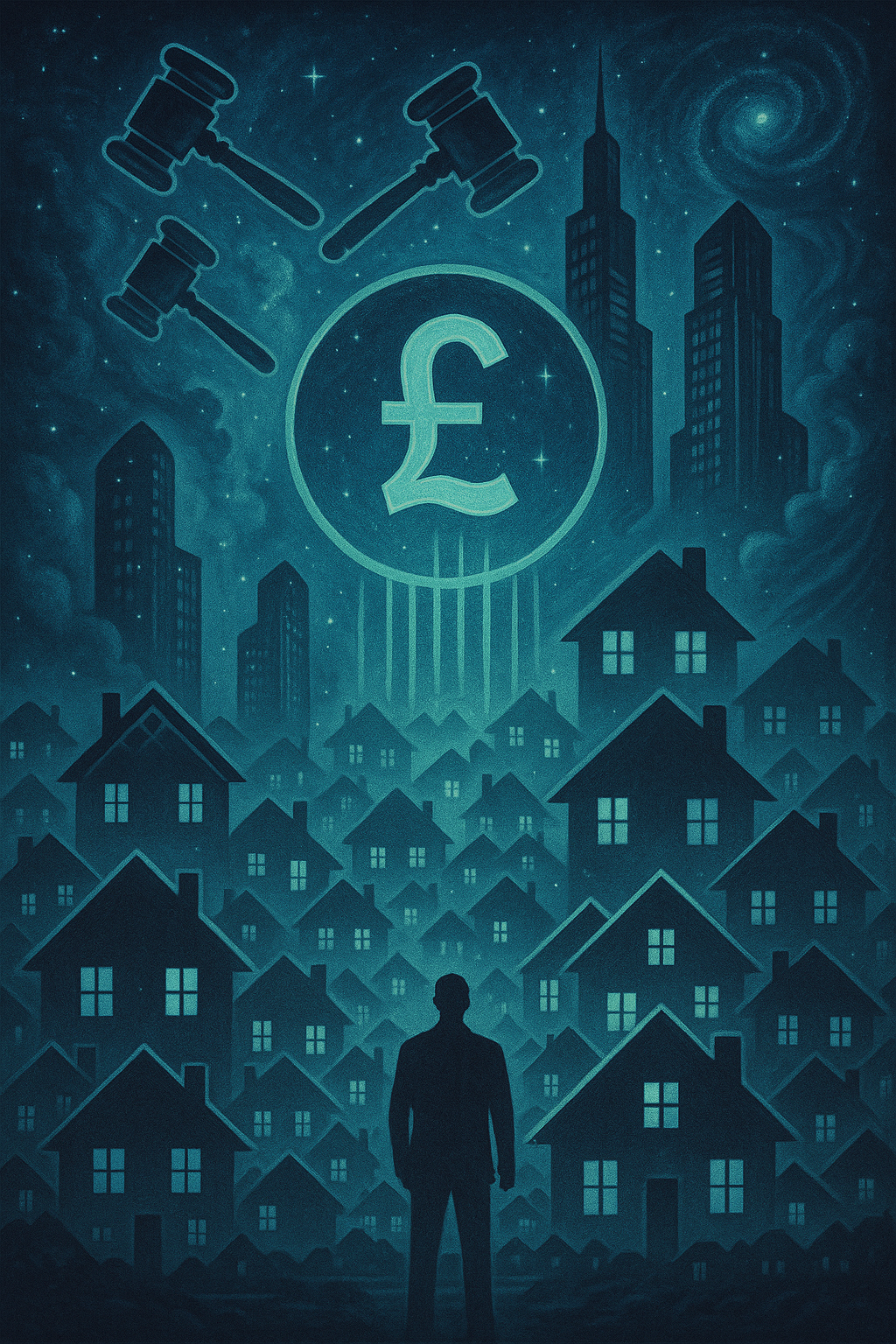Popular articles
The elites—governments, tech barons, corporate chiefs—stand on a chessboard with no good moves left. They’re pinned by a mess of players: lobbyists demanding payouts, trade unions flexing muscle, intelligence agencies sniffing for leverage, civil servants gumming up the works. Every direction’s a wall—push against lobbyists, and funding dries; cross unions, and strikes cripple; defy spooks, and secrets spill. External binds tighten it—trade’s a slog at 1.7% growth (World Bank, 2025), laws choke wealth (44% in the top 1%, Credit Suisse 2024), and borders stall deals. The peasantry’s their weak link, the go-to vent—siphon their cash, nick their wages, pile on taxes. It’s a lash-out move, often for the other groups’ gain, but that pawn’s wobbling, and the board’s about to flip.
Check the trap. Lobbyists aren’t asking—they’re dictating. A £10B contract comes with a 20% cut, or it’s dead—corporates bow or lose the game. Trade unions hold the line—push a law to cut their sway, and ports grind to a halt, costing billions. Intelligence outfits, state or shadow, dangle blackmail—every offshore account’s a string they pull. Civil servants drown it all in red tape—try a bold tax shift, and it’s three years of forms. The elites can’t budge; they’re stuck mid-board, pieces hemmed in. The peasantry’s the only outlet—£12B in tax gaps yearly (ONS), half from hidden elite wealth, gets dumped on them instead. A £5B council cut here, a wage freeze there—it’s siphoned off, funneled up, often to appease the louder voices. But that move’s running dry.
The peasantry’s at breaking point, and it’s not just noise—it’s numbers. Household debt’s up 15% since 2020 (UK stats), real wages flat since 2008. They’re squeezed—40% of income to rent in cities, 20% more to bills—and the lash-out’s blatant: £50B defense budgets vanish while schools rot. It’s not subtle anymore; the crowd feels it. Historically, they’d bend—too scattered, too broke to bite back. But the siphon’s hit bone—65% distrust centralized systems (IDC, 2025), and X buzzes with it. The elites lean on them, proxies for lobbyists or unions, but the weak link’s cracking. Push too hard—another tax hike, another cut—and it’s not just grumbling; it’s fire. They’re out of easy targets.
Then AI lands like a rook sweeping the board. It’s not gentle—quick, cheap, it lets the peasantry dig. Panama Papers were a taste—11.5 million files, elite dirt public in a flash. Now it’s worse: AI scrapes X, ties names to £10B deals, maps the siphon in hours. That £5B cut? Traced to a lobbyist’s pet project. The crowd’s not blind—tools, decentralized and dirt-cheap, crack the shell. They see the wealth grab, the proxy plays, and it’s all there—raw, dissected. Corruption’s not a whisper; it’s a shout. The elites can’t spin fast enough—centralized data’s a 40% failure rate (2025 cybersecurity stats), and every breach feeds the fire.
AI’s got teeth, too—lie detectors loom. Polygraph’s at 85%; machine learning’s pushing past. Voice ticks, word stumbles—motives bared. A shrink on a podcast nailed it: “Power hides from truth; AI drags it out.” Every elite speech, every “it’s for your good” line, gets shredded. The peasantry might not code it, but whistleblowers do—PR’s a bloodbath when your psyche’s pinned. It’s not just leaks; it’s exposure on steroids. They’ve thrived in the fog—bribes, rigs, quiet threats—but AI’s a spotlight, and they’re center stage. The board’s not just shaky; it’s burning.
Here’s the big shift: the elites need to lock down their own data—keep it on their devices, not some cloud or corporate vault. They’re the most corrupt, so they’re the most at risk—every move’s a target now. Restrict it, hold custody, build security where it lives. No more centralized honeypots—intelligence can’t snatch what’s not there, lobbyists lose their leverage maps. Picture it: encrypted drives, personal keys, offline stash—data’s theirs, not floating for grabs. Estonia’s e-governance shows the trick—citizen-held records cut fraud 30%. Scale that for the top—bank-grade, device-bound, untouchable. They’ve got the cash to invent it—£50B sloshing in defense could fund a new model: elite data locked, not leaked.
Why them, above all? They’re the bullseye—lobbyists don’t chase peasants’ secrets, unions don’t strike over their payslips. The elites’ dirt—offshore billions, backroom nods—fuels the trap; AI’s just the match. Holding their own data slashes the risk—no vaults to hack, no breaches to spin. They can’t fight the board—unions won’t budge, spooks won’t sleep—but they can shrink the target. Invest in it: tech firms rolling out personal vaults, banks pitching offline keys. Trade steadies when trust isn’t a joke; wealth holds when scandals fade. The peasantry’s fury cools if the siphon slows—less to trace, less to hate. It’s not about saving the crowd; it’s about saving themselves.
This flips the game. Restricting their data—custody on their turf—lets them slip the noose. They’ve got to lead it—create the tech, push the shift—because they’ve got the most to lose. Central control’s a bust—2024’s ransomware spike (73%, Verizon) proves it; AI’s too fast to fence. Build the shield: encrypted, local, theirs. Lobbyists pivot to new plays, civil servants ease off, intelligence chases ghosts. The peasantry’s still broke, but the lash-out’s less juicy—fewer threads to pull. It’s not redemption; it’s chess—P(Win) jumps from 20% (cornered kings) to 70% (quiet knights). They’ve got the moves—make ‘em, or the board’s ash.
Subscribe to unlock premium content
Sed at tellus, pharetra lacus, aenean risus non nisl ultricies commodo diam aliquet arcu enim eu leo porttitor habitasse adipiscing porttitor varius ultricies facilisis viverra lacus neque.
The Great Wealth Generation Act 1.0

The Great Democracy Restoration Act

UK Nutrition Act 1.0

The Great Wealth Generation Act 1.0

The Great Democracy Restoration Act

The Great Wealth Generation Act 1.0







